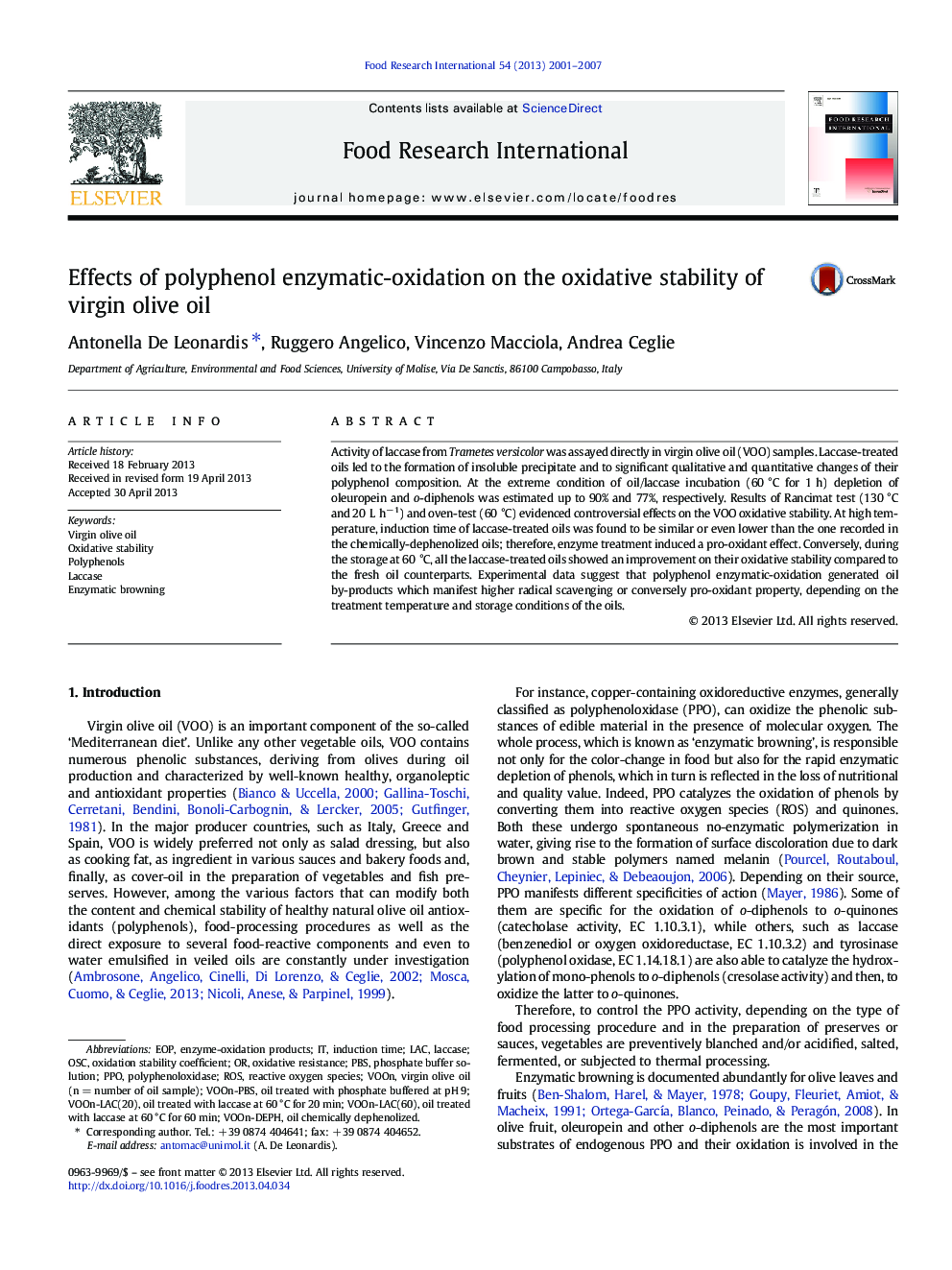| کد مقاله | کد نشریه | سال انتشار | مقاله انگلیسی | نسخه تمام متن |
|---|---|---|---|---|
| 6397519 | 1330675 | 2007 | 7 صفحه PDF | دانلود رایگان |

- Enzymatic phenol oxidation may occur in virgin olive oil in contact with vegetables.
- Laccase oxidation of polyphenols within the virgin olive oil (VOO) was studied.
- Laccase led to a significant reduction of oleuropein and o-diphenols fraction.
- Controversial results were found during the accelerated oil oxidation trials.
- Enzymatic phenol oxidation into VOO may be exploited also for analytical purposes.
Activity of laccase from Trametes versicolor was assayed directly in virgin olive oil (VOO) samples. Laccase-treated oils led to the formation of insoluble precipitate and to significant qualitative and quantitative changes of their polyphenol composition. At the extreme condition of oil/laccase incubation (60 °C for 1 h) depletion of oleuropein and o-diphenols was estimated up to 90% and 77%, respectively. Results of Rancimat test (130 °C and 20 L hâ 1) and oven-test (60 °C) evidenced controversial effects on the VOO oxidative stability. At high temperature, induction time of laccase-treated oils was found to be similar or even lower than the one recorded in the chemically-dephenolized oils; therefore, enzyme treatment induced a pro-oxidant effect. Conversely, during the storage at 60 °C, all the laccase-treated oils showed an improvement on their oxidative stability compared to the fresh oil counterparts. Experimental data suggest that polyphenol enzymatic-oxidation generated oil by-products which manifest higher radical scavenging or conversely pro-oxidant property, depending on the treatment temperature and storage conditions of the oils.
Journal: Food Research International - Volume 54, Issue 2, December 2013, Pages 2001-2007